Skip to content
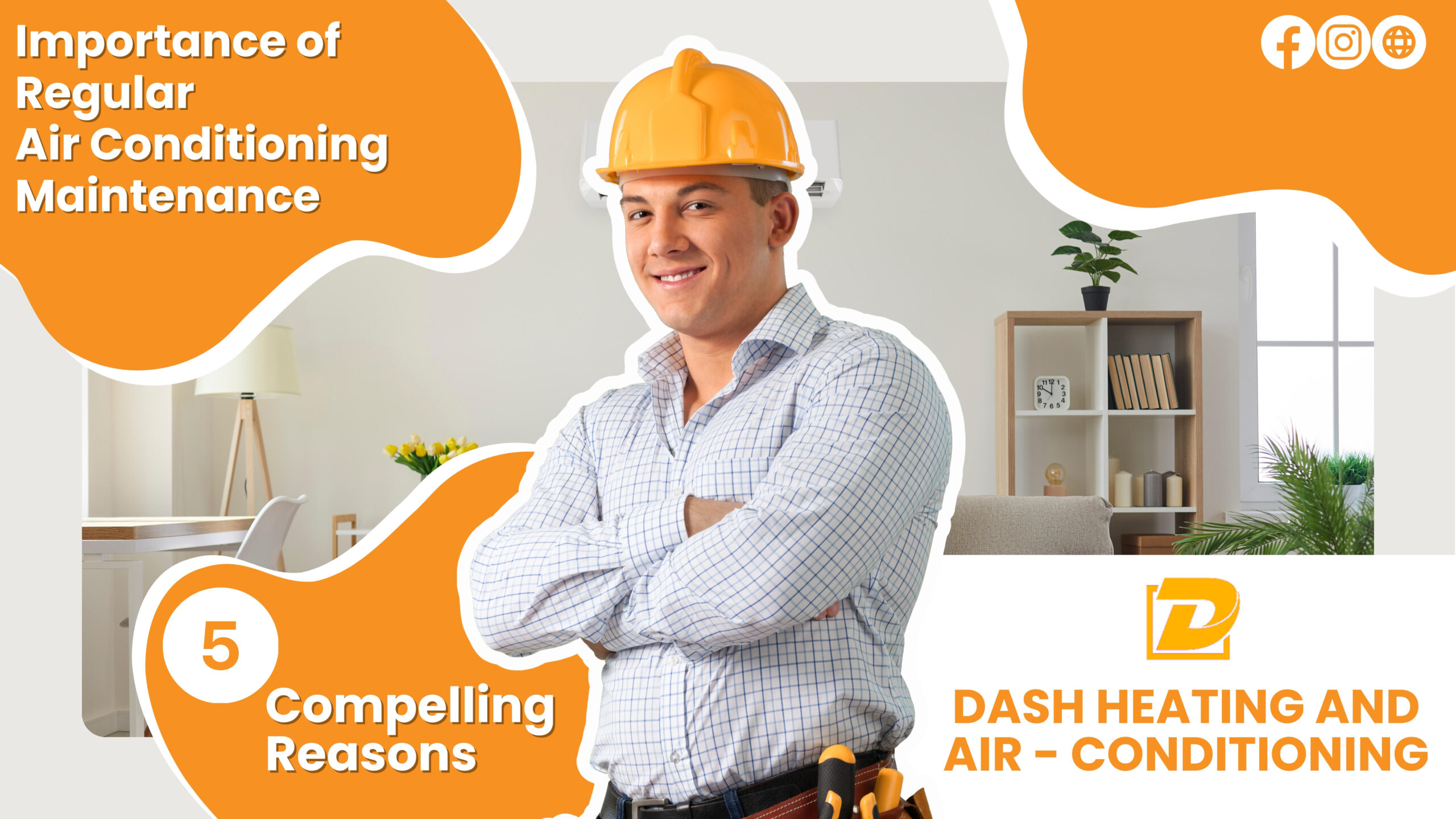
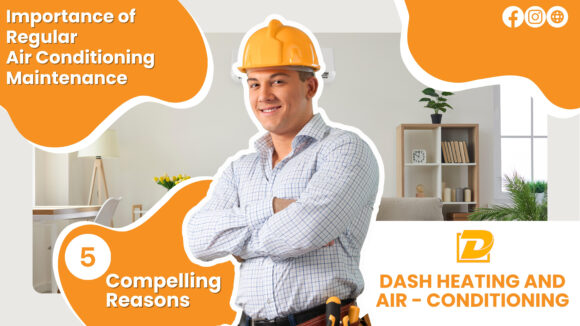
In today’s discourse, we delve into the significance of consistent cleaning and maintenance of your air conditioning system, as provided by professional technicians. Here are five compelling reasons why prioritizing this aspect is crucial:
1. Enhanced Efficiency
The quintessential argument advocating for the regular maintenance of any mechanical system underscores the inevitable wear and tear it undergoes over time. Although frequently cited, this rationale remains indispensable, akin to a timeless lesson in electronics usage. In the context of air conditioning units, this axiom holds particularly true.
Failure to maintain and clean your air conditioning system could result in an annual loss of approximately 5% in efficiency. Regular check-ups ensure optimal cooling performance, thereby reducing the waiting time for your room to reach the desired temperature after activation. This heightened efficiency translates into tangible benefits, marking a notable perk worth acknowledging.
2. Reduction in Energy Costs
The correlation between improved efficiency and diminished energy expenditure is profound when it comes to air conditioning units. Enhanced efficiency entails reduced energy consumption and shorter cooling durations, contributing to substantial savings in operational costs. Considering that air conditioners often rank among the most power-consuming appliances, the significance of this aspect becomes all the more apparent.
To quantify, a meticulously maintained air conditioning system could potentially yield energy savings of up to 25% on monthly utility bills, reflecting a considerable financial advantage.
3. Improved Air Quality
Many contemporary air conditioning units incorporate built-in air filtration mechanisms alongside their cooling functionalities to ensure the expulsion of purified air. Some advanced models even feature sophisticated air purification systems capable of filtering out microscopic particles and airborne pathogens, thereby enhancing air quality. However, irrespective of the filtration system’s complexity, dust and debris inevitably accumulate on the filter panels over time, impeding its efficacy.
For window-type air conditioners, self-cleaning of filters is feasible by removing the panels and employing a vacuum cleaner to eliminate accumulated dust. Conversely, split-type units or individuals unfamiliar with the cleaning process may opt for professional cleaning services to ensure thorough maintenance. Clean air filters facilitate the production of fresher, cleaner, and more invigorating air, underscoring the paramount importance of this aspect.
4.Protection of Vital HVAC Components
As with all electronic appliances, the constituent components comprising an air conditioning system are susceptible to wear and tear throughout its lifecycle. However, preempting premature replacement due to neglect remains imperative, especially considering the potential ramifications. HVAC experts contend that routine, preventative maintenance can obviate the need for most air conditioner replacements.
Foremost among the value-added services offered by professional technicians is the capacity to diagnose potential issues and assess the condition of individual components before catastrophic failure ensues. Failure to prioritize cleaning and maintenance could precipitate irreversible damage to crucial parts, necessitating costly repairs or even full system replacements. In such instances, any purported savings derived from deferring maintenance activities are negated by the substantial expenditure associated with system restoration.
5. Prolonged Operational Lifespan
By safeguarding HVAC components through regular cleaning and maintenance, homeowners can anticipate prolonged system longevity and sustained operational efficiency. While each model inevitably exhibits a finite lifespan, conscientious upkeep can maximize its utility and performance.
It is imperative to recognize the interconnectedness of an air conditioning system’s various components, where a single malfunctioning part can precipitate a cascading series of failures. Through regular cleaning and preventative maintenance, homeowners can ensure optimal system performance, thereby mitigating the risk of systemic breakdowns and preserving the integrity of their investment.
In conclusion, the importance of consistent cleaning and maintenance of air conditioning systems cannot be overstated. Beyond the tangible benefits of improved efficiency, reduced energy costs, and enhanced air quality, prioritizing this aspect serves to protect vital HVAC components and prolong the operational lifespan of the system. As such, homeowners are encouraged to engage professional technicians and adhere to routine maintenance schedules, thereby ensuring the continued comfort and reliability of their air conditioning systems.
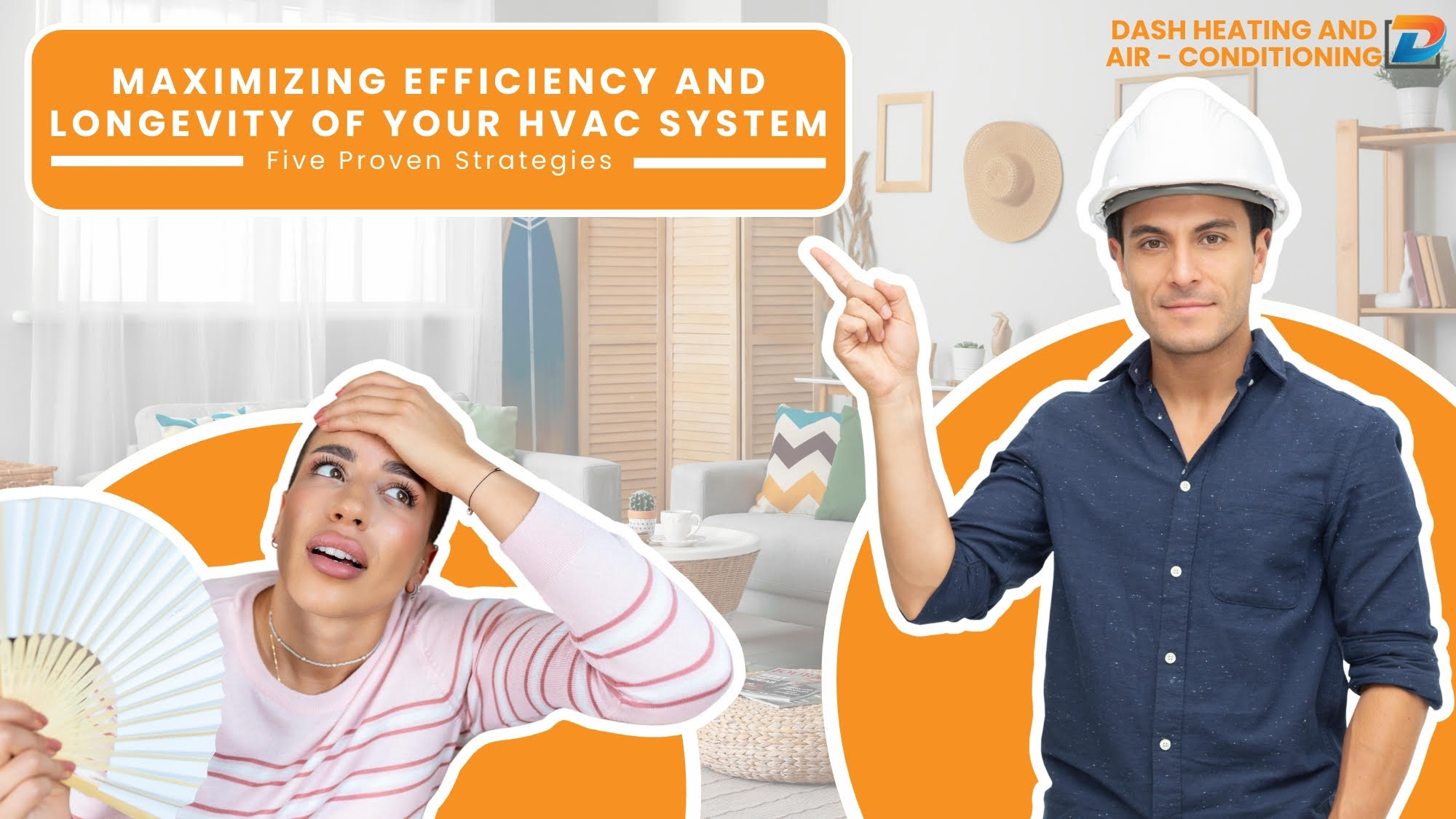

Investing in a new HVAC system can strain your budget, but what if you could enhance the efficiency and lifespan of your current one? By implementing a few simple strategies, you can optimize its performance, extend its longevity, and reduce energy costs. In this comprehensive guide, we’ll explore five proven methods to get the most out of your older HVAC system.
Regular Filter Changes:
Regularly changing your HVAC system’s filters is one of the most effective ways to boost its efficiency. Clogged filters force the system to work harder, leading to increased energy consumption and reduced performance. By replacing filters on schedule, you ensure optimal airflow and prevent contaminants from affecting air quality. Additionally, regular duct cleaning can eliminate obstructions and further enhance airflow and system efficiency.
Invest in Proper Insulation:
A well-insulated home significantly reduces the workload on your HVAC system. Proper insulation helps maintain a stable indoor temperature, reducing the need for frequent heating or cooling adjustments. This, in turn, leads to more efficient operation and a prolonged lifespan for your HVAC system. Investing in insulation upgrades for your home can yield substantial long-term savings on energy bills while enhancing comfort levels year-round.
Upgrade to a Programmable or Smart Thermostat:
Traditional thermostats may not offer the flexibility and efficiency benefits of programmable or smart thermostats. Programmable thermostats allow you to set temperature schedules based on your habits and lifestyle, ensuring that your HVAC system operates only when necessary. Smart thermostats take this a step further by learning your preferences and adjusting settings automatically to optimize energy usage. By upgrading to a programmable or smart thermostat, you can improve efficiency, reduce energy waste, and enjoy more consistent indoor comfort.
Keep Vents and Registers Unobstructed:
Blocked vents and registers can impede airflow and force your HVAC system to work harder to maintain desired temperatures. Ensure that vents and registers are free from obstructions such as furniture, drapes, or toys. Periodically cleaning vents and registers can also prevent dust and debris buildup, ensuring optimal airflow throughout your home. By keeping these pathways clear, you can maximize your HVAC system’s efficiency and performance.
Schedule Professional Servicing:
While DIY maintenance tasks can help maintain your HVAC system, nothing beats professional servicing when it comes to ensuring peak efficiency and performance. Professional technicians have the expertise and tools to thoroughly inspect, clean, and tune your HVAC system for optimal operation. They can identify and address any issues before they escalate, preventing costly repairs and prolonging the lifespan of your system. By scheduling regular professional servicing, you can rest assured that your HVAC system is running at peak efficiency year-round.
Conclusion:
Your comfort and satisfaction are our top priorities at D&B ClimateCare. Our team of experts is dedicated to helping you optimize the efficiency and performance of your existing HVAC system. By following these five proven strategies, you can enhance comfort, extend the lifespan of your system, and save on energy costs. Contact us today to learn more about how we can help you achieve optimal HVAC performance without the need for a costly new installation.

Your HVAC (Heating, Ventilation, and Air Conditioning) system plays a crucial role in maintaining comfort in your home. However, there are numerous myths and misconceptions surrounding HVAC systems that can lead to inefficiencies, unnecessary expenses, and discomfort. In this comprehensive guide, we will debunk common HVAC myths to help you make informed decisions, optimize your system’s performance, and ensure your home stays cozy throughout the year.
Chapter 1: Myth or Fact – Setting the Temperature Extremely High or Low Heats/Cools Faster
1.1 Explanation:
Setting your thermostat to an extreme temperature, whether too high or too low, doesn’t make your HVAC system work faster. This is a common misconception. HVAC systems operate at a relatively consistent rate, and the temperature you set only determines when the system will reach that temperature. It won’t affect the speed at which it heats or cools.
1.2 Energy Efficiency:
One of the consequences of this myth is increased energy consumption and higher utility bills. When you set your thermostat to an extreme temperature, the HVAC system will work longer to achieve that setting, consuming more energy in the process. This not only leads to inefficiency but can also put unnecessary wear and tear on your system.
Chapter 2: The Bigger, the Better – Oversized HVAC Systems
2.1 Right-sizing Your System:
Choosing the right-sized HVAC system for your home is critical. Oversized systems are often problematic because they cycle on and off more frequently, leading to inefficient operation, uneven temperature distribution, and increased energy consumption. An HVAC professional can perform load calculations to determine the appropriate size for your home.
2.2 Efficiency and Comfort:
The correct system size ensures that your HVAC system operates efficiently, maintaining a consistent and comfortable indoor temperature. It prevents short cycling, where the system runs for a short time and then shuts off, which not only consumes more energy but also fails to dehumidify the air adequately, leading to discomfort.
Chapter 3: Regular Maintenance Is Unnecessary
3.1 Importance of Maintenance:
Regular HVAC maintenance is vital to keep your system running smoothly. It involves tasks such as cleaning components, lubricating moving parts, checking refrigerant levels, and inspecting electrical connections. Without maintenance, your system can accumulate dust and debris, leading to reduced efficiency and a higher risk of breakdowns.
3.2 DIY vs. Professional Maintenance:
While homeowners can perform some maintenance tasks, such as changing air filters, a professional HVAC technician is needed for more complex maintenance. They have the expertise to identify and address potential issues before they become major problems. Professional maintenance not only ensures better performance but also extends the life of your HVAC system.
Chapter 4: Closing Vents in Unused Rooms Saves Energy
4.1 How HVAC Systems Work:
Many people believe that closing vents in unused rooms will save energy. However, HVAC systems are designed to distribute air evenly throughout the house. Closing vents can disrupt this balance, causing issues such as increased pressure in the ducts and potentially damaging your system.
4.2 Balancing Your System:
To optimize temperature control and energy efficiency, consider balancing your HVAC system. This involves adjusting dampers or using a zoning system to direct airflow where it’s needed, rather than closing vents.
Chapter 5: All Air Filters Are the Same
5.1 Importance of Air Filters:
Air filters play a crucial role in an HVAC system by capturing dust, pollen, pet dander, and other airborne particles. They also contribute to indoor air quality and system efficiency. However, not all air filters are created equal.
5.2 Choosing the Right Filter:
There are various types of air filters, including fiberglass, pleated, electrostatic, and HEPA filters. Each has different levels of filtration and lifespan. Choosing the right filter depends on your specific needs, allergies, and the level of air quality improvement you desire.
Chapter 6: Your HVAC System Only Needs Attention When It Breaks
6.1 Proactive vs. Reactive Maintenance:
Waiting for your HVAC system to break down before seeking maintenance is a costly mistake. Proactive maintenance helps prevent breakdowns by identifying and addressing issues early. It includes tasks like cleaning components, checking for refrigerant leaks, and ensuring electrical connections are secure.
6.2 Signs of Trouble:
Understanding the signs of HVAC trouble is essential. If you notice unusual noises, uneven heating or cooling, or an increase in energy bills, these can be indicators that your system needs attention. Ignoring these signs can lead to more extensive and costly repairs down the road.
Chapter 7: Closing Your Curtains or Blinds Doesn’t Affect Heating and Cooling
7.1 Insulating Your Home:
Curtains and blinds can be effective tools in maintaining your home’s temperature. When properly used, they provide an extra layer of insulation, helping to keep warm air inside during the winter and preventing excess heat from entering during the summer.
7.2 Seasonal Adjustments:
To maximize energy efficiency, adjust your curtains or blinds seasonally. During the winter, open them during the day to let in sunlight and close them at night to retain heat. In the summer, keep them closed during the hottest part of the day to block out heat.
Chapter 8: Your HVAC System Doesn’t Need Upgrades
8.1 Advancements in HVAC Technology:
Today’s HVAC systems come with advanced technology that can significantly improve energy efficiency and comfort. Upgrading your system to a more modern one can result in lower energy bills, better temperature control, and improved indoor air quality.
8.2 Return on Investment:
While there’s an initial cost to upgrading your HVAC system, consider the long-term benefits. Calculate potential energy savings and compare them to the investment cost. Many homeowners find that the return on investment makes upgrading a wise choice.
Chapter 9: Closing Off Vents in Unused Rooms Saves Energy
9.1 How HVAC Systems Work:
Reiterate that closing vents in unused rooms disrupts the system’s balance and can lead to pressure issues, inefficiency, and potential damage.
9.2 Balancing Your System:
Reiterate the importance of balancing your HVAC system for optimal temperature control and energy efficiency. Encourage readers to explore professional solutions to achieve this balance, such as zoning systems.
Chapter 10: Frequent Changes in Thermostat Settings Increase Efficiency
10.1 Consistency is Key:
Remind readers that frequent thermostat adjustments can lead to inefficiencies in the HVAC system. Explain how it’s better to set a consistent temperature and avoid unnecessary changes.
10.2 Optimal Setpoints:
Provide recommendations for setting your thermostat at an optimal temperature. Explain how a slightly lower temperature in the winter and a slightly higher temperature in the summer can result in significant energy savings without sacrificing comfort.
Conclusion
Now that you’re armed with the knowledge to debunk common HVAC myths and optimize your system’s performance, it’s time to take action. Ensure your home’s comfort and save on energy costs by seeking professional guidance and regular maintenance. Don’t leave your HVAC system to chance.
Contact Dash Heating and Air today to schedule an HVAC system evaluation or maintenance service. Our experienced technicians will keep your system running smoothly, helping you achieve a more comfortable and cost-effective home. Take the proactive approach to HVAC care and enjoy peace of mind knowing you’re making informed decisions about your home’s climate control. Reach out to us now for a better, more efficient tomorrow!
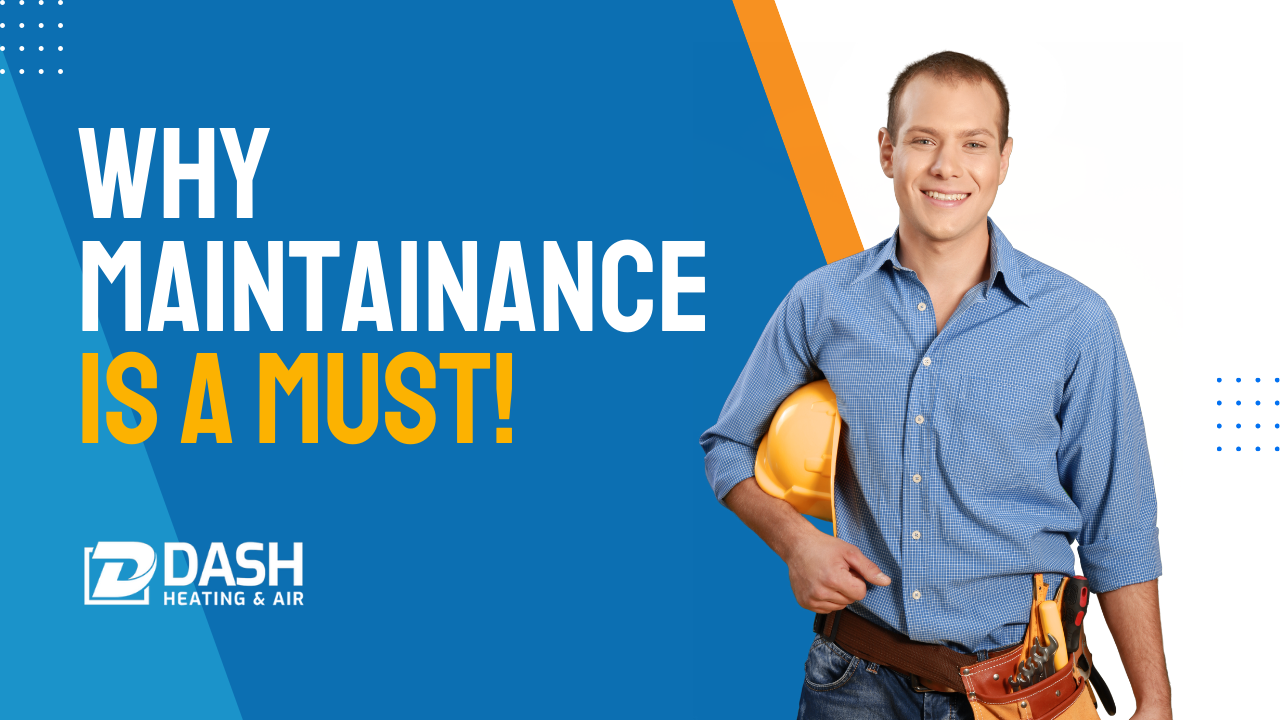
Your HVAC (Heating, Ventilation, and Air Conditioning) system is the heart of your home’s comfort, ensuring that you stay warm in winter and cool in summer. But like any other piece of machinery, it needs regular care to perform at its best. In this comprehensive guide, we’ll explore why professional HVAC maintenance is not just a good idea but an essential investment in your system’s longevity and efficiency. From understanding the importance of maintenance to detailing the process and benefits, you’ll gain insights into how HVAC maintenance can enhance your comfort and save you money.
Chapter 1: The Crucial Role of HVAC Systems
1.1 Understanding HVAC Systems:
Begin by explaining the fundamental functions of HVAC systems, including heating, cooling, ventilation, and air filtration. Emphasize their importance in maintaining indoor comfort and air quality.
1.2 Investment in Home Comfort:
Discuss the significance of an HVAC system as a substantial investment in your home. Mention its role in creating a comfortable living environment.
Chapter 2: The Importance of HVAC Maintenance
2.1 What Is HVAC Maintenance?
Define HVAC maintenance and explain that it involves a series of tasks designed to keep the system running smoothly. Mention that it includes cleaning, inspection, adjustment, and parts replacement.
2.2 Longevity and Efficiency:
Highlight the two primary benefits of HVAC maintenance—extending the system’s lifespan and optimizing its energy efficiency. Explain how regular maintenance can prevent breakdowns and save on energy bills.
Chapter 3: The Cost of Neglect
3.1 The Consequences of Neglect:
Discuss the potential consequences of neglecting HVAC maintenance. Include higher energy bills, decreased lifespan, frequent breakdowns, and poor indoor air quality.
3.2 Repair vs. Replacement:
Explain how neglected HVAC systems often face costly repairs or premature replacement. Compare the cost of maintenance to the cost of these major repairs or replacements.
Chapter 4: The HVAC Maintenance Process
4.1 Regular vs. Seasonal Maintenance:
Discuss the difference between regular maintenance (performed annually) and seasonal maintenance (before each heating and cooling season). Explain the importance of both.
4.2 Tasks and Inspections:
Detail the specific tasks involved in HVAC maintenance, such as cleaning or replacing air filters, inspecting electrical connections, lubricating moving parts, and checking refrigerant levels.
Chapter 5: The Benefits of Professional Maintenance
5.1 Expertise and Experience:
Explain why professional HVAC maintenance is superior to DIY efforts. Professional technicians have the expertise, experience, and tools necessary to perform comprehensive maintenance.
5.2 System Optimization:
Discuss how professional maintenance optimizes the performance of HVAC systems. Mention that technicians can identify and address potential issues before they become major problems.
5.3 Energy Efficiency:
Highlight the role of professional maintenance in improving energy efficiency. Well-maintained systems operate more efficiently, resulting in lower energy bills.
Chapter 6: HVAC Maintenance Plans
6.1 Annual Maintenance Plans:
Discuss the availability of annual maintenance plans offered by HVAC contractors. Explain the benefits of signing up for a plan, including regular scheduled maintenance visits.
6.2 Cost Savings:
Explain how maintenance plans can lead to cost savings by bundling services, offering discounts, and providing priority service in case of emergencies.
Chapter 7: Signs It’s Time for Maintenance
7.1 Recognizing the Signs:
Educate readers on the common signs that indicate it’s time for HVAC maintenance, such as reduced airflow, strange noises, uneven heating or cooling, and higher energy bills.
7.2 Seasonal Maintenance Timing:
Emphasize the importance of scheduling maintenance before each heating and cooling season to ensure optimal system performance.
Chapter 8: DIY Maintenance vs. Professional Maintenance
8.1 DIY Maintenance:
Discuss the maintenance tasks that homeowners can perform themselves, such as changing air filters and keeping outdoor units clean. Emphasize that professional maintenance should complement DIY efforts.
8.2 Professional Expertise:
Highlight the expertise and skills of professional HVAC technicians. Explain that they can identify issues that may not be apparent to homeowners and provide solutions.
Chapter 9: Indoor Air Quality and Safety
9.1 Air Quality Impact:
Discuss how HVAC maintenance can improve indoor air quality by ensuring proper ventilation, clean filters, and functioning air purifiers.
9.2 Safety Concerns:
Mention the safety aspect of HVAC maintenance, including the prevention of potential hazards like gas leaks or electrical issues.
Chapter 10: Promoting Longevity and Efficiency
10.1 The Long-Term Investment:
Summarize the long-term benefits of professional HVAC maintenance, including extended system lifespan, reduced energy bills, and fewer costly repairs.
10.2 Dash Heating and Air:
Introduce Dash Heating and Air as your trusted HVAC maintenance partner. Highlight your experience, certified technicians, and commitment to customer satisfaction.
Conclusion
Don’t wait until your HVAC system shows signs of trouble; take proactive steps to ensure it performs at its best. Reach out to Dash Heating and Air today to schedule your professional HVAC maintenance! Our certified technicians have the expertise, experience, and tools needed to keep your system running smoothly. Invest in your home’s comfort and efficiency by partnering with Dash Heating and Air – your trusted HVAC maintenance experts. Contact us now and experience the benefits of a well-maintained HVAC system.
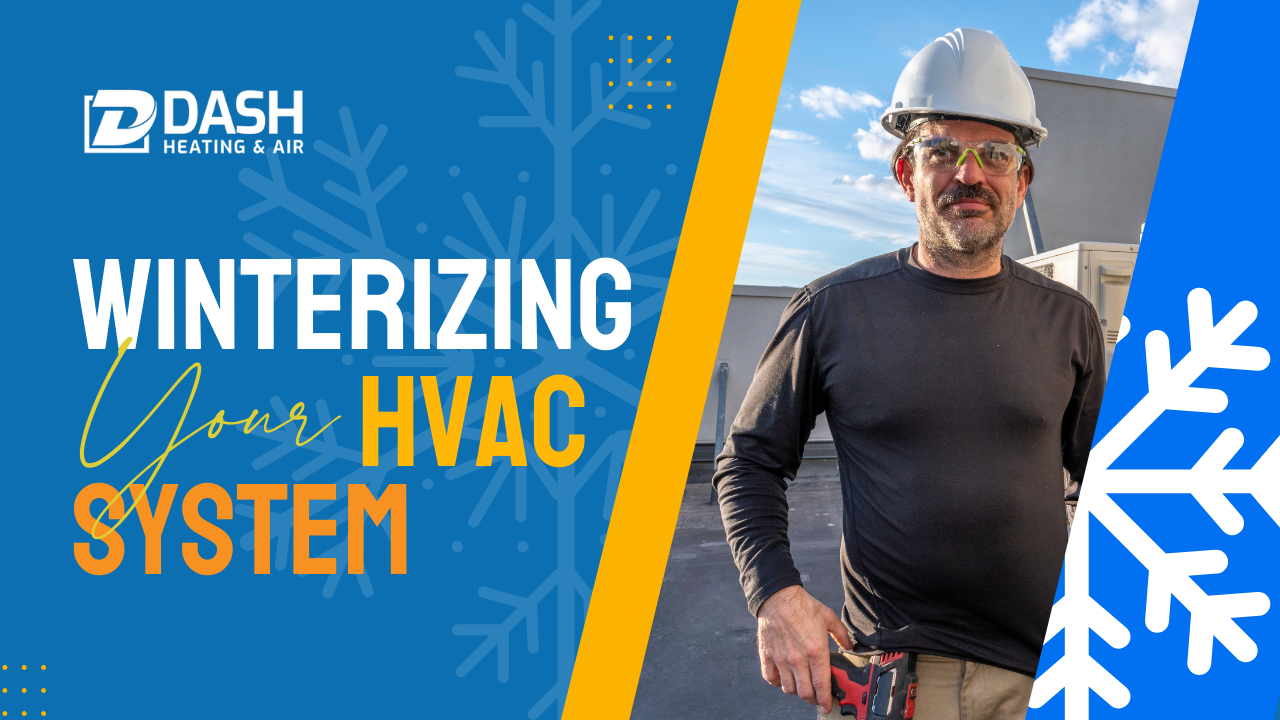
As the leaves start to change colors and the air becomes crisp, it’s a sure sign that winter is on its way. While you may be focused on preparing your home for the holiday season, one crucial aspect that often goes overlooked is winterizing your HVAC (Heating, Ventilation, and Air Conditioning) system. Proper winterization not only ensures that your HVAC system operates efficiently during the cold months but also helps you save on energy costs. In this comprehensive guide, we’ll walk you through the essential steps to winterize your HVAC system, ensuring your home stays warm and comfortable throughout the winter season.
Chapter 1: Why Winterize Your HVAC System?
1.1 Increased Efficiency:
In this section, you would explain how winterization improves the efficiency of your HVAC system. By preparing your HVAC system for the cold weather, it can operate more effectively in heating your home. This means you’ll get better performance and comfort while using less energy.
1.2 Energy Savings:
Discuss how winterizing your HVAC system can lead to significant energy savings. When your system runs efficiently, it doesn’t have to work as hard, resulting in lower energy bills. You can mention statistics or case studies to emphasize the potential cost savings.
1.3 Prolonged Lifespan:
Explain how proper maintenance and winterization can extend the lifespan of your HVAC system. This is important because HVAC systems are a significant investment, and by taking care of it, you can avoid the expense of premature replacement.
Chapter 2: Conducting a System Inspection
2.1 Air Duct Inspection:
Detail the steps involved in inspecting air ducts. This includes checking for leaks, blockages, and damages. Explain why a well-maintained duct system is essential for efficient heating.
2.2 Filter Replacement:
Describe the importance of clean filters and the impact they have on indoor air quality and system efficiency. Provide guidance on when to replace filters and how to choose the right ones.
2.3 Thermostat Check:
Explain why a functioning thermostat is crucial for precise temperature control. Include instructions on how to ensure your thermostat is working correctly.
Chapter 3: Sealing and Insulating
3.1 Weatherstripping Windows and Doors:
Discuss the significance of sealing gaps around windows and doors to prevent drafts. Offer tips and techniques for weatherstripping and recommend suitable materials.
3.2 Insulating Attics and Crawl Spaces:
Explain the importance of insulation in retaining heat. Describe different insulation materials and methods, emphasizing the benefits of insulating attics and crawl spaces.
3.3 Sealing Air Leaks:
Identify common areas in a home where air leaks can occur and explain how to seal them effectively. Emphasize how this prevents heat loss.
Chapter 4: Outdoor Unit Care
4.1 Cleaning the Unit:
Discuss why cleaning the outdoor HVAC unit is crucial before winter. Explain how debris and dirt can impact its efficiency and the steps homeowners can take to clean it.
4.2 Covering the Unit:
Detail when and how to cover the outdoor HVAC unit to protect it from winter weather. Mention the importance of using the right materials and techniques.
Chapter 5: Programmable Thermostats
5.1 Setting a Winter Schedule:
Explain the benefits of programmable thermostats, such as maintaining a comfortable temperature while conserving energy. Provide instructions on how to program thermostats for optimal winter comfort and savings.
Chapter 6: Professional Maintenance
6.1 Scheduling a Tune-Up:
Discuss the importance of scheduling professional HVAC maintenance before winter arrives. Explain what a typical maintenance visit includes.
6.2 Hiring a Technician:
Offer guidance on how to choose a qualified HVAC technician for maintenance. Highlight the importance of experience and certification.
Chapter 7: Emergency Preparedness
7.1 Identifying Common Winter HVAC Problems:
List and describe common HVAC problems that can occur during winter, such as frozen pipes or furnace malfunctions. Provide information on how to recognize these issues.
7.2 What to Do in an Emergency:
Outline steps homeowners can take in case of an HVAC emergency, emphasizing safety and when to call for professional help.
Chapter 8: Staying Warm and Energy-Efficient
8.1 Alternative Heating Methods:
Discuss supplementary heating methods, such as space heaters or fireplaces, that can reduce reliance on the HVAC system.
8.2 Maximizing Energy Efficiency:
Offer additional tips for maintaining energy efficiency during winter, such as setting the thermostat at an optimal temperature and using curtains or blinds strategically.
Conclusion
Don’t let the winter chill catch you off guard! It’s time to take action and ensure your home remains cozy and cost-effective throughout the winter season. Winterizing your HVAC system is the key to increased efficiency, energy savings, and prolonged system lifespan. By following the comprehensive guide we’ve provided, you can make sure your HVAC system operates at its best, keeping you warm without breaking the bank.
Ready to schedule your HVAC winterization services? Look no further than Dash Heating and Air, your trusted experts in HVAC maintenance. Our skilled technicians will conduct a thorough inspection, seal and insulate your home, and provide professional care for your outdoor unit. Plus, with programmable thermostat guidance and emergency preparedness tips, you’ll be well-prepared for the winter ahead. Don’t wait; contact Dash Heating and Air today to book your appointment and enjoy a comfortable, energy-efficient winter season. Stay warm, save money, and secure your peace of mind with Dash Heating and Air!







